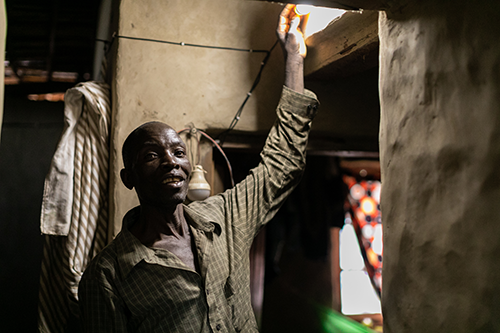SolarAid
Giving light to the poorest households in Malawi
Across sub-Saharan Africa, 590 million people currently live without access to electricity; 17 million of these are in Malawi. After sunset, many households have to burn dangerous and expensive paraffin candles or kerosene lamps to provide light.
 Innovative solutions such as plug-and-play solar home systems could be quickly deployed in countries such as Malawi so that households would have access to affordable energy. The problem with these devices is that they are too costly for the poorest communities to buy, even when solar companies offer payment by instalment.
Innovative solutions such as plug-and-play solar home systems could be quickly deployed in countries such as Malawi so that households would have access to affordable energy. The problem with these devices is that they are too costly for the poorest communities to buy, even when solar companies offer payment by instalment.
SolarAid, which has distributed over two million solar lights across sub-Saharan Africa through its social enterprise SunnyMoney, knew that without game-changing action, there would be little chance of achieving the sustainable development goal of universal access to electricity by 2030.
The charity discovered that if low-income customers did not have to buy their own solar light systems, many could afford to pay to use them. As a result, it created the Light a Village project, whereby for the first time solar systems would be installed for free in every Malawian household.
The pilot project began in 2021 in Kasakula, a deprived community with 7,500 households that had no electricity grid access and no rural electrification plans for the next decade. It initially brought solar light and power to 500 homes in exchange for a small daily fee – 70 Malawian Kwacha a day (around 7p).
Since then, SolarAid has installed 2,500 solar home systems that have allowed an estimated 10,000 people and 12 schools to access electricity. It also trained 50 local community service representatives and 10 assistants.
The project is ongoing and expected to benefit all 7,500 households this year, with an extra 5,000 solar home systems set to cover the whole Kasakula community.
Solar enterprises in Senegal, Sierra Leone and Madagascar have now expressed an interest in replicating the scheme.
Charity Awards judge Richard Hawkes, chief executive of British Asian Trust, said of the project: “The impact was good, it was innovative, it was cost effective, it was replicable, and it had the potential to scale.”
CC Reg no. 1115960

